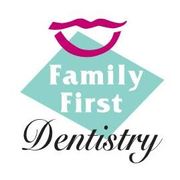
For just three letters, TMJ can cause immense agony. Short for temporomandibular joint dysfunction, TMJ is a set of temperamental and unpredictable disorders caused by the deterioration of the joint, which is located on either side of your mouth and connects your jawbone to your skull. TMJ can cause severe pain and discomfort, and it often requires an emergency dentist visit to be treated. However, by learning what causes TMJ flare-ups, you can take steps to avoid them.
What is TMJ?
Causes
Each flare-up may have a different cause. These include a wide range of factors: stress, dehydration, eating hard-to-chew foods, hormonal fluxes, poor posture, and chewing gum, to name just a few.
Symptoms
Flare-ups can include clicking or popping in the joint, pain, limited range of motion, or even a locked jaw (although this is limited to severe cases).
Your specific causes and symptoms may vary due to the root cause or the severity of the disorder. Symptoms may last for just a couple days or a few weeks, but they can become chronic if left untreated. If symptoms are severe, see an emergency dentist to stop the situation from becoming persistent.
How Can Symptoms Be Managed?
Avoiding Triggers
The best way to treat your symptoms is to avoid their causes at all costs. Avoid situations that have been known to or may cause a flare-up. For instance, if you have had a flare-up or persisting symptoms after chewing on certain foods like pretzels or taffy, avoid consuming these foods.
Sometimes it might be difficult or even impossible to avoid TMJ triggers. In these cases, see if there are any ways to eliminate, or at least reduce, the risk of a flare-up. Also, be sure to visit a dentist to treat this condition. A good emergency dentist will work with you to reduce your risk of future flare-ups.
You can also incorporate preventative habits into your daily routine. These include eating softer foods, avoiding stress, staying hydrated, sleeping on your back, and practicing good posture.
Treatment
A good dental professional will be able to give you advice on how to treat reoccurring symptoms as well as how to prevent them. Applying moist heat is an effective way to prevent flare-ups. If pain or swelling is already present, apply ice instead.
Your dentist may also recommend over-the-counter pain medications, analgesic or anti-inflammatory creams, or a prescribed mouth guard. In rare and severe cases, you may need to undergo TMJ surgery. An emergency dentist will be able to help you treat severe symptoms and sudden flare-ups.
If you’re searching for an emergency dentist in the Anchorage, AK, area, Family First Dentistry has the experts and experience you need. They provide a range of services that also include dental implants and crowns, and they also offer patients flexible financial plans for payment. Give them a call today at (907) 562-2820 or visit them online for more information.
About the Business
Have a question? Ask the experts!
Send your question

